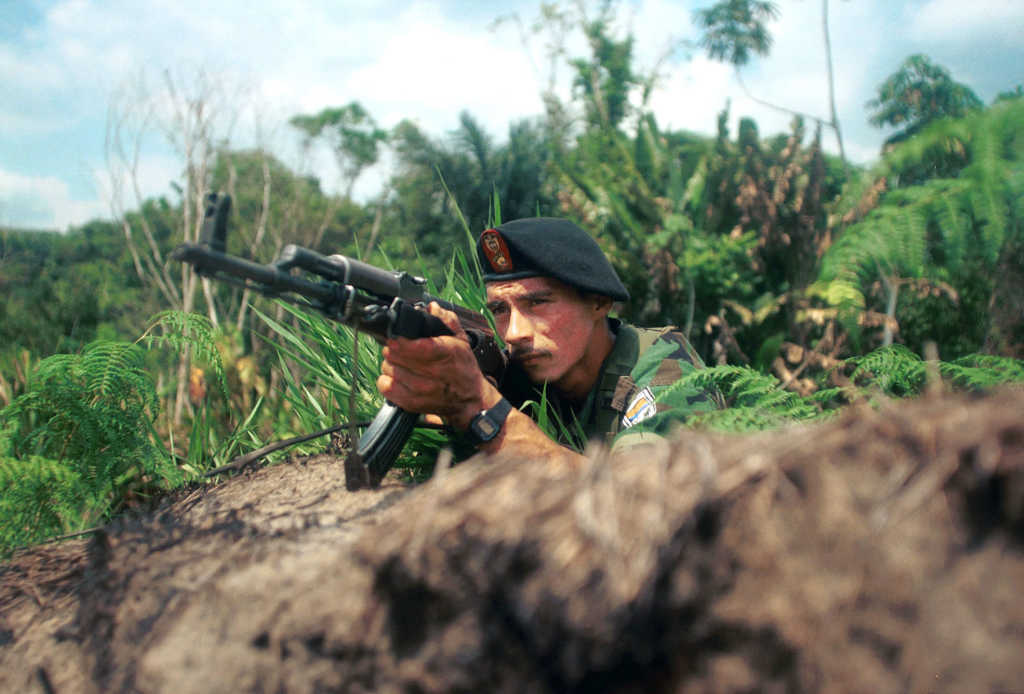A pastor was shot dead earlier this month as he left his church in North West Colombia. The slaying is the latest in a string of attacks at the hands of communist militants and has sent shockwaves of fear across the nation’s large Christian population.
Stunning Miracles Documented in the Hometown of 21 Coptic Christians Murdered by ISIS
Pastor Leider Molina, who was just 24 years old, had just finished up delivering a sermon at his church in Caucasia, Antioquia state, when he was struck by a hail of bullets. Molina was known to be a passionate and energetic youth leader and pastor who worked at a church located roughly 670 kilometers north of the capital, Bogotá.
The Caucasia region has seen an escalation in violence over recent months, as various armed groups fight for control over drug smuggling routes and areas that are rich in narcotic crops.
Unfortunately, pastors who are bold enough to speak out against the illegal and corrosive drugs trade have found themselves in grave danger. Last September, two pastors were murdered in separate incidents — Pastor Galarza, a social and religious leader, was murdered in front of his family. Then, Pastor Elfren Martínez Pérez was gunned down for refusing to assist a paramilitary group with transport.
Earlier in the year, a priest who served a number of parishes in Brooklyn was also killed in Colombia — though this was reported to have been as a result of a robbery.
“Communist guerrillas, paramilitary groups, criminal gangs and drug cartels all see the Church as an enemy to be eradicated because, thanks to the preaching and courageous action of leaders and pastors, many young people have renounced armed conflict and illegal activities,” a regional source told World Watch Monitor.
Many believe that the hardline communist militia, the Revolutionary Armed Forces of Colombia (FARC), are responsible for the recent spate of slayings, which included the murder of two pastors last September.
Who is FARC?
The Revolutionary Armed Forces of Colombia officially declared an end to its armed struggle in 2017, instead choosing to become a political party — the Common Alternative Revolutionary Force. However, thousands of heavily armed FARC dissidents continue to function as a major player in the drug trade.
“We [are] doing the same work, we have the same ideals — and we’ll charge ahead, God willing,” one of the commanders told The New York Times in September of last year.
FARC, which used brutal methods of guerrilla warfare and regularly engaged in extortion, kidnapping and murder, has been a central figure in the longstanding Colombian conflict, which originated in the 1960s. FARC’s main opposition was the right-wing “National Liberation Army,” or the “ELN.” Between 1959 and 2013, an estimated 220,000 people have been killed in the conflict.
What has the response been from the Christian community?
As you can imagine, Christians are becoming increasingly concerned with the recent uptick in violence.
“Some Christians have fled with their families, while others have decided to stay awaiting the government intervention,” added the WWM source. “Church leaders, however, continue their work despite the death threat.”
Unfortunately, despite attempts from the government to usher the guerrilla militants into a new era of peace, it appears that there is no reprieve in sight for many of Colombia’s Christians who choose to speak out about the problem of drug trafficking.
“The peace process with FARC has stalled”, explained Rossana Ramirez, an analyst with Open Doors International’s World Watch Research unit. “In the coming months, it is likely that priests, pastors and church communities will continue to experience pressure and violence ‘as normal.'”
Do pray for the family of the victims and the wider Christian community as they face this serious threat.



